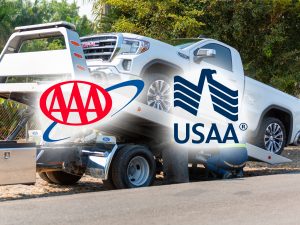Navigating car insurance can often feel overwhelming, but the effort to find the best deal is worth it. Why? Because the right car insurance isn’t just about having coverage—it’s about protecting yourself financially while not overpaying for what you need. Whether you’re a first-time driver, car owner, or financially savvy individual looking to save, this blog will help you make informed decisions.
Here’s why comparing car insurance matters and how you can secure the best deal today.
What Is Car Insurance? Understanding the Basics
Before you search for the best deals, it’s essential to understand how car insurance works. At its core, car insurance provides financial protection in case of accidents, damage, or theft. However, not all policies are created equal.
Types of Coverage
Car insurance plans typically include several types of coverage, such as:
- Liability Coverage: Covers damage or injury caused to others in an accident.
- Collision Coverage: Covers damage to your car, regardless of who’s at fault.
- Comprehensive Coverage: Protects against non-collision events like theft, vandalism, or weather damage.
- Uninsured/Underinsured Motorist Coverage: Offers protection if you’re hit by someone without adequate insurance.
- Personal Injury Protection (PIP) or Medical Payments Coverage: Covers medical expenses for you and your passengers.
Each state in the U.S. has different legal requirements, so ensure your policy aligns with your location’s guidelines.
How Premiums Are Calculated
Your car insurance premium—the amount you pay for coverage—is calculated based on factors like:
- Driving Record: A cleaner record generally means lower rates.
- Credit Score (in most states): Insurers often consider your creditworthiness.
- Location: Urban areas may have higher premiums due to increased accident risks.
- Type of Vehicle: Luxury or high-performance cars often cost more to insure.
- Coverage Level: More coverage equals higher premiums.
Understanding these variables can help you identify areas to adjust and potentially save.
How to Compare Car Insurance Deals
The key to finding the best car insurance? Comparison. Here’s a simple step-by-step guide to help you get started.
Step 1: Assess Your Needs
Ask yourself critical questions, such as:
- Do I need full coverage, or will liability suffice?
- How often do I drive, and where?
- What’s my budget for insurance premiums?
Step 2: Gather Quotes from Multiple Providers
Aim to collect quotes from at least 3–5 different car insurance companies. Many sites offer comparison tools that make this process easy by letting you input your details once.
Step 3: Compare Coverage Levels
Don’t just focus on price—an ultra-cheap policy might leave you underinsured. Instead, compare the coverage types, limits, and deductibles available with each policy.
Step 4: Check for Discounts
Many companies provide unique discounts for safe driving, bundling policies (e.g., home and auto), being a student, or even having certain occupations.
Step 5: Review the Fine Print
Carefully read the terms and conditions to avoid hidden fees or exclusions.
Step 6: Look at Customer Reviews
Check customer satisfaction ratings from sources like J.D. Power or Trustpilot to understand how insurers handle claims and customer support.
Top Car Insurance Deals
Here’s a quick rundown of some of the leading car insurance providers and what makes them unique based on recent offerings:
Geico
- Known for consistently low rates.
- Discounts for military, federal employees, and multi-policy holders.
- User-friendly mobile app for policy management.
State Farm
- Highly rated for customer service.
- Offers extensive local agent support for personalized service.
- Great discounts for safe drivers and bundled policies.
Progressive
- Unique Snapshot program tracks driving behaviors for potential discounts.
- Transparent pricing with detailed breakdowns in quotes.
- Specializes in high-risk drivers.
Allstate
- Offers accident forgiveness and personalized coverage.
- Discounts for new cars, autopay, and early renewal.
- Intuitive app for filing claims and tracking progress.
Liberty Mutual
- Customizable coverage options tailored to individual needs.
- Cashback rewards program for accident-free driving.
- Competitive discounts for vehicles with safety features.
Tips to Save on Car Insurance
Want to cut down your costs even further? Try these tips to save on premiums without sacrificing necessary coverage.
- Bundle Policies: Combine your auto insurance with home or renters insurance to score discounts.
- Raise Your Deductible: Opting for a higher out-of-pocket cost can lower your monthly premium.
- Maintain a Good Credit Score: Statistically, drivers with higher credit scores receive better rates.
- Take a Defensive Driving Course: Many insurers offer discounts to drivers who complete these programs.
- Ask About Low Mileage Discounts: If you don’t drive often, some companies offer discounts for low annual mileage.
- Shop Annually: Don’t be afraid to switch insurers for better rates or coverage.
Real-Life Savings Stories
Still unsure whether comparing insurance works? Check out these quick savings wins from our readers.
- Sarah from Arizona reduced her premium by 20% after bundling her car and renters insurance with Progressive.
- Mark in New York saved $300 annually by switching to Geico and using their safe driver discount.
- Linda from California, a low-mileage driver, got a 15% discount through Allstate’s Milewise program!
These stories prove that with just a little effort, you can save big.
FAQs About Car Insurance
How often should I review my car insurance policy?
It’s recommended to review your car insurance policy annually or whenever there’s a major life change, like moving or purchasing a new vehicle.
Can I switch car insurance providers mid-term?
Yes! Most insurers allow you to switch at any time, though there may be cancellation fees. Always check your current policy’s terms first.
What’s the difference between a deductible and a premium?
A premium is the amount you pay for insurance, while a deductible is the amount you pay out of pocket before your coverage kicks in after a claim.
Are online quote comparison tools reliable?
Most tools offer reliable estimates, but always validate the final quote directly with the provider to ensure accuracy.
Does age affect car insurance rates?
Yes, younger and older drivers tend to have higher insurance rates due to perceived risk factors.
Take Action and Start Saving
Finding the best car insurance deal doesn’t have to be complicated. With a little research and smart comparison, you can customize a plan that protects you and your wallet.
Take the first step today—start comparing car insurance quotes now. Your perfect policy is just a few clicks away!




